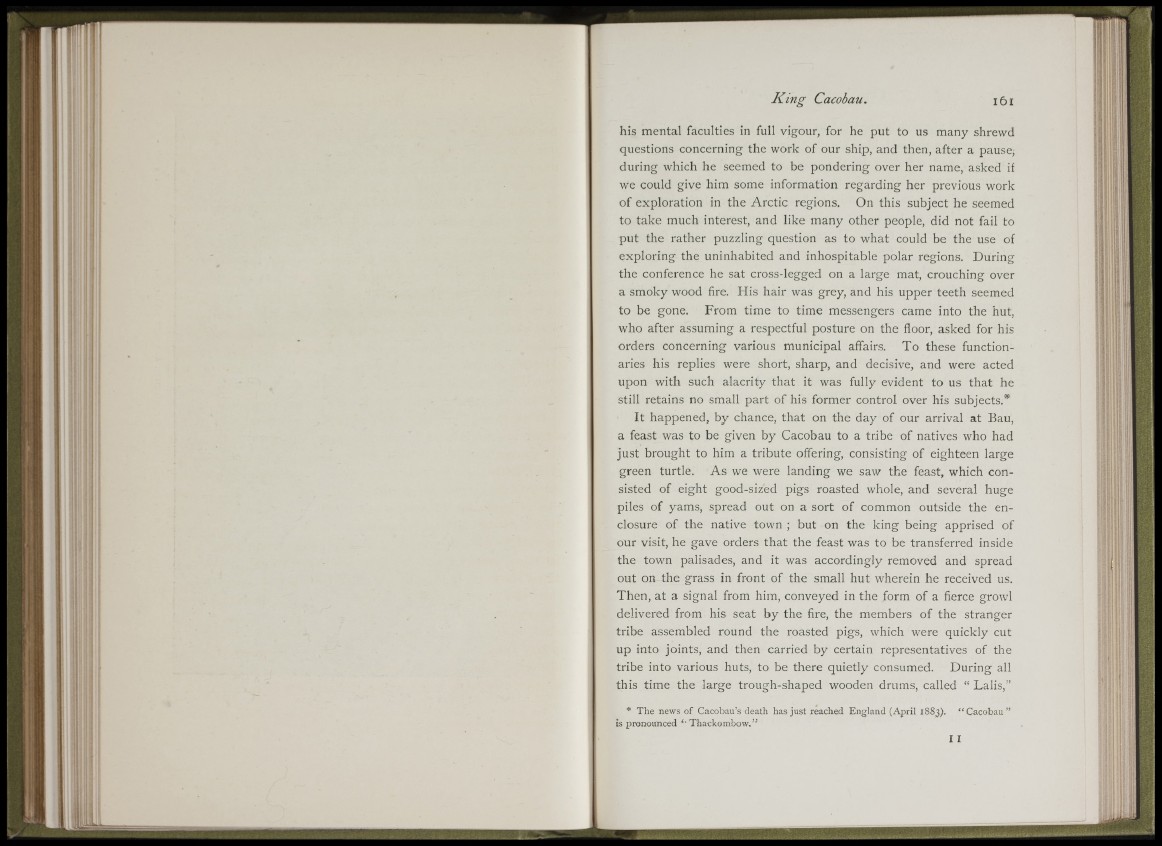
K in g Cacobau. l6 i
his mental faculties in full vigour, for he put to us many shrewd
questions concerning the work of our ship, and then, after a pause,
during which he seemed to be pondering over her name, asked if
we could give him some information regarding her previous work
of exploration in the Arctic regions. On this subject he seemed
to take much interest, and like many other people, did not fail to
put the rather puzzling question as to what could be the use of
exploring the uninhabited and inhospitable polar regions. During
the conference he sat cross-legged on a large mat, crouching over
a smoky wood fire. His hair was grey, and his upper teeth seemed
to be gone. From time to time messengers came into the hut,
who after assuming a respectful posture on the floor, asked for his
orders concerning various municipal affairs. To these functionaries
his replies were short, sharp, and decisive, and were acted
upon with such alacrity that it was fully evident to us that he
still retains no small part of his former control over his subjects.*
It happened, by chance, that on the day of our arrival at Bau,
a feast was to be given by Cacobau to a tribe of natives who had
just brought to him a tribute offering, consisting of eighteen large
green turtle. As we were landing we saw the feast, which consisted
of eight good-sized pigs roasted whole, and several huge
piles of yams, spread out on a sort of common outside the enclosure
of the native town ; but on the king being apprised of
our visit, he gave orders that the feast was to be transferred inside
the town palisades, and it was accordingly removed and spread
out on the grass in front of the small hut wherein he received us.
Then, at a signal from him, conveyed in the form of a fierce growl
delivered from his seat by the fire, the members of the stranger
tribe assembled round the roasted pigs, which were quickly cut
up into joints, and then carried by certain representatives of the
tribe into various huts, to be there quietly consumed. During all
this time the large trough-shaped wooden drums, called “ Lalis,”
The news of Cacobau’s death has just reached England (April 1883). “ Cacobau’
is pronounced “ Thackombow.”
I I
^ ' L t;
kir ! icdii: j
uL ivl
1
; i I ' 11; li